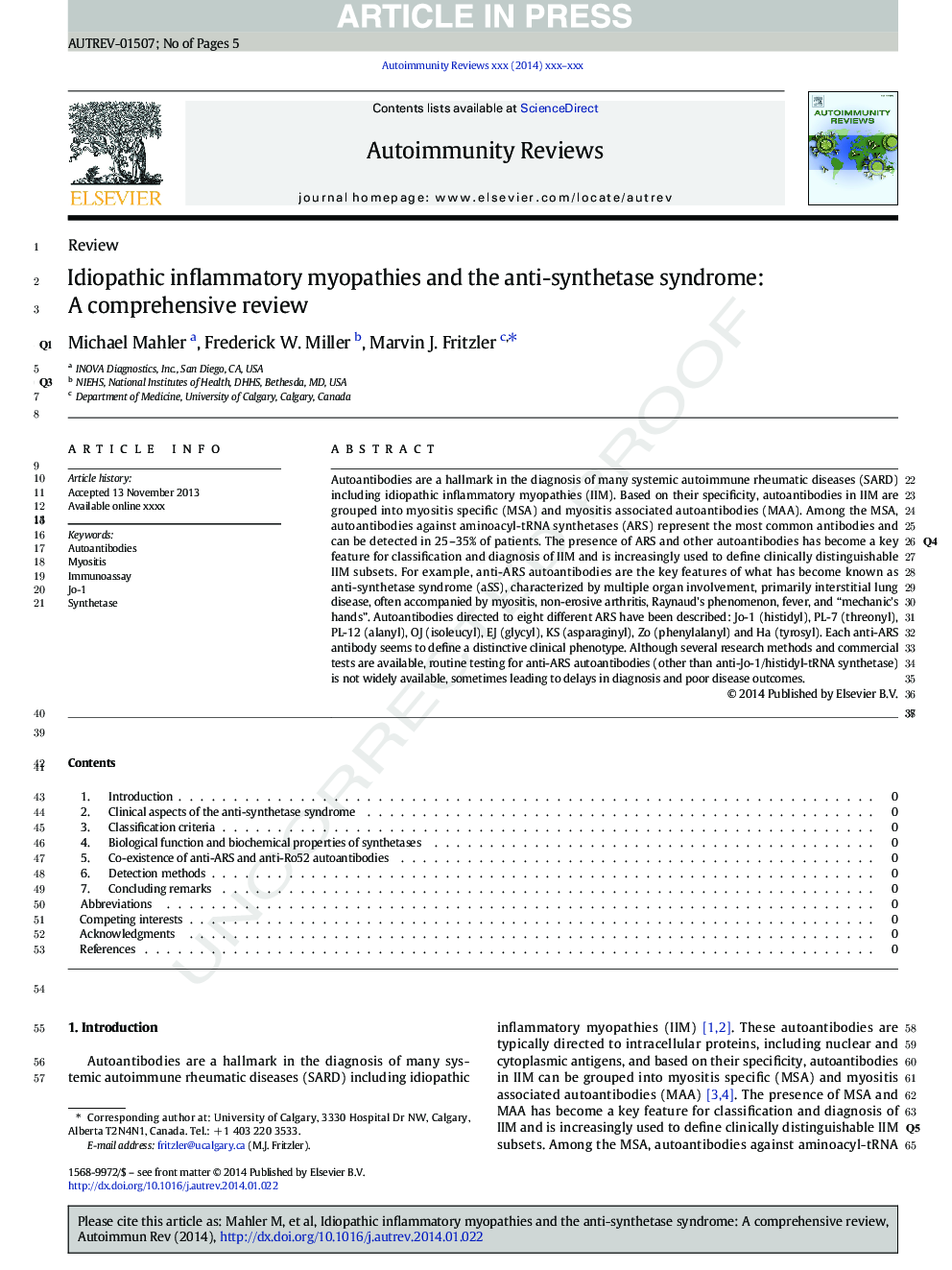| Article ID | Journal | Published Year | Pages | File Type |
|---|---|---|---|---|
| 6114466 | Autoimmunity Reviews | 2014 | 5 Pages |
Abstract
Autoantibodies are a hallmark in the diagnosis of many systemic autoimmune rheumatic diseases (SARD) including idiopathic inflammatory myopathies (IIM). Based on their specificity, autoantibodies in IIM are grouped into myositis specific (MSA) and myositis associated autoantibodies (MAA). Among the MSA, autoantibodies against aminoacyl-tRNA synthetases (ARS) represent the most common antibodies and can be detected in 25-35% of patients. The presence of ARS and other autoantibodies has become a key feature for classification and diagnosis of IIM and is increasingly used to define clinically distinguishable IIM subsets. For example, anti-ARS autoantibodies are the key features of what has become known as anti-synthetase syndrome (aSS), characterized by multiple organ involvement, primarily interstitial lung disease, often accompanied by myositis, non-erosive arthritis, Raynaud's phenomenon, fever, and “mechanic's hands”. Autoantibodies directed to eight different ARS have been described: Jo-1 (histidyl), PL-7 (threonyl), PL-12 (alanyl), OJ (isoleucyl), EJ (glycyl), KS (asparaginyl), Zo (phenylalanyl) and Ha (tyrosyl). Each anti-ARS antibody seems to define a distinctive clinical phenotype. Although several research methods and commercial tests are available, routine testing for anti-ARS autoantibodies (other than anti-Jo-1/histidyl-tRNA synthetase) is not widely available, sometimes leading to delays in diagnosis and poor disease outcomes.
Related Topics
Life Sciences
Immunology and Microbiology
Immunology
Authors
Michael Mahler, Frederick W. Miller, Marvin J. Fritzler,
